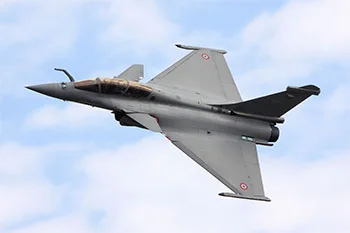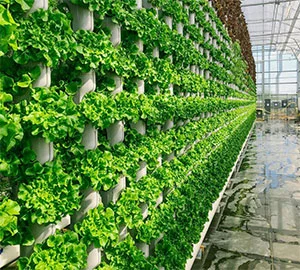Daily Current Affairs for UPSC, IAS, UPPSC/UPPCS, BPSC, MPPSC, RPSC and All State PCS Examinations
National Education Policy 2020
Why in NEWS?
The Union Cabinet on 29th July, 2020 approved the new National Education Policy (NEP) and renamed the HRD Ministry as Education Ministry, making way for large scale, transformational reforms in both school and higher education sectors.
National Education Policy (NEP) 2020
- It replaces the 34 year old National Policy on Education (NPE), 1986.
- It aims for Universalization of Education by bringing out the unique capabilities of each student and to transform India into a vibrant knowledge society.
- It is aligned to the 2030 Agenda for Sustainable Development.
- Innovative education centres to bring back dropouts into the mainstream and bring 2 crore out of school children back into the main stream.
- There would be a single regulator for all higher education institutions.
- MPhil would be discontinued.
- National Educational Technology Forum (NETF) would be created under which E-courses will be developed in eight regional languages initially and virtual labs will be developed.
- Top 100 foreign colleges will be allowed to set-up campuses in India.

Committee
- It was headed by former ISRO chief K Kasturirangan which suggested changes in the education system under the NEP.
- The National Policy on Education (NPE) was drafted in 1986 and updated in 1992.
- The NEP was part of the election manifesto of the ruling Bhartiya Janta Party (BJP) ahead of the 2014 elections.
Induction of Rafale in Indian Air Force
IN NEWS
- The first five Indian Air Force (IAF) Rafale aircraft have arrived at Air Force Station, Ambala. The aircraft got airborne from Dassault Aviation Facility, Merignac, France on the morning of 27th July 2020 and reached India this afternoon with a planned stopover en-route at Al Dhafra airbase in the UAE.

ABOUT
- The ferry was planned in two stages and was undertaken by IAF pilots. The aircraft covered a distance of nearly 8500 km from France to India.
- First stage of the flight covered a distance of 5800 km in seven and a half hours. French Air Force (FAF) Tanker provided dedicated Air-to-Air Refuelling support during the flight.
- The second stage of the flight covering over 2700 km was carried out with Air-to-Air Refuelling by IAF Tanker.
- Three Rafale fighter jets are single-seater and two are twin-seater.
- India will be the fourth country, after France, Egypt and Qatar, to fly the Rafale.
GOLDEN ARROWS
- The aircraft will be a part of 17 Squadron, the “Golden Arrows”, which was resurrected on 10th Sep2019. The Squadron was originally raised at Air Force Station, Ambala on 01st Oct 1951.
- The first Rafale’s tail number, RB-001, denotes the initials of the IAF chief Rakesh Bhadauria who had led the complex negotiations for the Rafale deal.
RAFALE AIRCRAFT
- Rafale, categorised as a 4.5 generation aircraft for its radar-evading stealth profile, is important for IAF since most of the aircraft in its fleet, including the Mirage 2000 and the Su-30 MkI, are classified as either third or fourth-generation fighters.
- The Rafale is a twin-jet fighter aircraft able to operate from both an aircraft carrier and a shore base.
- The Rafale jets will be a crucial enhancement to India’s Medium Multi-role Combat Aircraft fleet.
CONCLUSION
- The new aircraft will significantly enhance the offensive capabilities of IAF, which has for long-planned to update its fighter jet force. Defence experts opine the induction of the controversial Rafale fighter jets will be a “game-changer” for India in regional politics of South Asia.
Vertical Farm
Why in NEWS?
- Kandla Special Economic Zone (KASEZ) to build vertical farm for Kutch farmers as demonstration.

About
- KASEZ is building a vertical farm to demonstrate commercial application of aeroponics technology to farmers in the arid regions of Kutch district in Gujarat.
- The vertical farm will be about 20 feet in height and will be soilless.
- This aeroponics project is being implemented by KASEZ in a small experimental patch of five acres at Kandla to demonstrate it to the farmers of this region that this is doable on their barren farms.
Vertical farming
- It is the process of growing agricultural crops in vertical stacks in door, in a controlled environment, using same amount of water as that of regular farming.
- However, the other raw materials consumed by vertical farming are less.
- According to FAO (Food and Agriculture Organization) of the United Nations, vertical farming consumes 75% less raw material as compared to traditional farming.
Aeroponics Farming
- It is a soilless farming technology in a controlled environment.
- It is a process of spraying or fogging nutrient solution and atomized water to the root of plant.
- It allows multilevel farming which means vertical farming is possible, thereby maximising the potential of a small piece of land by up to 22 times.
- The height of the vertical farming can range between 10-20 feet and can be grown indoor and outdoor.
Prelims Practice Question (MCQ Quiz)
Q1. Consider the following statement regarding National Education Policy (NEP) 2020-
1. Committee for NEP 2020 was headed by former ISRO chief
K Kasturirangan.
2. NEP’s New 5+3+3+4 school curriculum with 12 years of schooling and 3
years of Anganwadi/ Pre-schooling.
3. New Policy promotes Multilingualism and National Institute for Pali,
Persian and Prakrit , Indian Institute of Translation and Interpretation to
be set up under NEP 2020.
Select the correct option
a. 1 Only
b. 2 and 3
c. 1 and 2
d. 1,2 and 3
Answer: D
Q2. CONSIDER THE FOLLOWING STATEMENT AND CHOOSE THE CORRECT ONE-
A. The Rafale aircraft will be a part of 15 Squadron, the
“Golden Arrows”, which was resurrected on 10th September 2019.
B. India will be the fourth country, after France, Egypt and Qatar, to fly
the Rafale.
OPTION
1. A only
2. B only
3. Both
4. None of the above.
Answer- 2
Explanation- The aircraft will be a part of 17 Squadron, the “Golden Arrows”, which was resurrected on 10th Sep20 19. India will be the fourth country, after France, Egypt and Qatar, to fly the Rafale.
Q3. Consider the following statement regarding methods of farming-
1. Aeroponics Farming is a soilless farming technology in
a controlled environment where nutrient solution and atomized water is
sprayed to the root of plant.
2. According to FAO (Food and Agriculture Organization) of the United
Nations, vertical farming consumes about 75% less raw material as compared
to traditional farming.
Select the correct option-
a. 1 Only
b. 2 Only
c. 1 and 2 Both
d. Neither 1 nor 2
Answer: C








